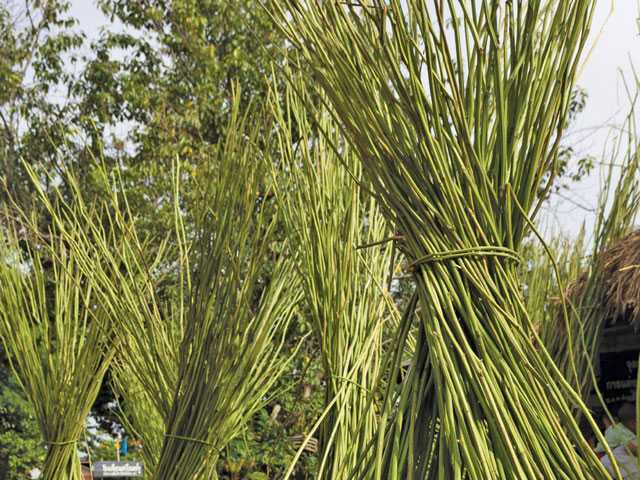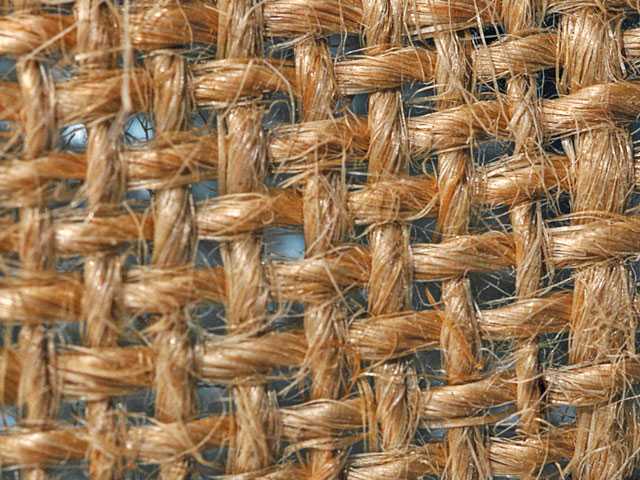Source: signalscv.com

Hemp stalks

Burlap-type fabric made from hemp
Not to be confused with the high effect marijuana can produce, hemp used for industrial purposes has only trace amounts of THC (tetrahydrocannabinol) – the main psychoactive element in medicinal or recreational marijuana.
Banned for decades, producers have had to import the raw industrial product from China, Canada and Eastern Europe.
Manufacturers have used the harvested plant stalks to make textiles, composites, rope, fabric and paper, clothing and footwear, beauty products, nutritional and dietary supplements, and scores of products in almost every industry.
It can even be used as a substitute for fiberglass in automobile parts. Even auto legend Henry Ford experimented with the production of a car whose body panels were made from hemp, and the vehicle ran on hemp-based fuel.
California farmers could have been growing industrial hemp after the state legislature approved cultivation of mature stalks of the plant in the California Industrial Hemp Farming Act. Gov. Brown signed the bill into law in Sept. 2013. But for the most part, that’s as far as the law got – a signature.
“There’s a pretty huge range of products that can be produced from it – over 25,000 products,” said Eric Steenstra, executive director of The Hemp Industries Association. “But the California Attorney General (Kamala Harris) gave an opinion that it was only legal for university research, not commercial cultivation.”
At the time California approved industrial hemp, Sen. Mark Leno, who shepherded the bill through the state legislature, said it had been a 10-year effort to get approval. Leno felt it would help sustain family farms, calling it a $500 million industry at the time with the potential for 10 percent annual growth.
Today, at least 28 states have laws in place related to industrial hemp, according to the National Conference of State Legislatures.
Harris’s ruling came on the heels of federal action, however. President Obama signed the Agricultural Act of 2014, or the Farm Bill, which allowed for universities and state agricultural departments to begin cultivating industrial hemp for limited purposes.
In an opinion issued June 2015, Harris said since the federal Farm Bill did not provide for the private sector to cultivate hemp, commercial production in California wouldn’t be legal for anything other than agricultural or academic research.
But, even if federal law changes, it will take time and an investment to build the labor force and infrastructure, Steenstra said.
“We were disappointed and frustrated with the attorney general’s ruling,” Steenstra said on behalf of the industry association. “Clearly other states have interpreted it differently; California left us behind based on a very narrow interpretation. We don’t believe it was the intent of the legislature to only limit hemp production to university research use.”
No comments:
Post a Comment